There have been many questions regarding a potential policy for KCS to allow “released time for religious moral instruction.” This is part II in a series of posts to consider those questions.
What are teachers saying about the possibility of the Knox County Board of Education adopting a “released time” policy?
The fact that an educator, any educator, has to fight their school board for the opportunity to educate, is a very discouraging one. Right now, I am fighting to teach. Spending my time imploring my school board to not pass this new program is not something I really want to spend my time doing–it is taking away from my planning and personal time. Frankly, I feel let down that this school board is even considering the measure. But it is very high stakes to me and so many other specialists, it is worth writing. As our school board, I would like to think that you have our students’ LEARNING experience in mind at all times. Pulling out, for any reason, is not providing a good, solid, learning or teaching experience.
~ KCS Art Educator
To interrupt class time for an outside group on a regular basis is a disservice to those of us who teach, but more importantly, a very great disservice to our students.
The data for one child per school year (approximations, as each school has a different schedule):
45 minute class x 30 class times = 1350 minutes of time for each special during the school year.
Broken down into hours, 1350 minutes/60 = 22.5 hours during the school year.
22.5 hours or 3.75 six-hour days total to teach and help our students grow across the year. That is not much at all, but amazing things happen in those few short hours. To interrupt class time for an outside group on a regular basis (that could as easily take place AFTER school) is a disservice to those of us who teach, but more importantly, a very great disservice to our students.
~ KCS Art Educator
Visual arts, music and physical education are non-tested subjects, but they are indispensable. Students need these skills to hold any job.
Visual arts, music and physical education are non-tested subjects, but they are indispensable. I teach visual arts and I teach our students to solve problems in creative ways and find new solutions to problems using a variety of processes. We learn how to give critical feedback to peers using interpersonal skills. Through art history, we gain understanding of our world, our culture, and our relationships with other people. Students need these skills to hold any job.
Students with a strong background in visual art and music are better positioned for tomorrow’s changing world. They learn to adapt, to never give up, and to be strong.
Knox County students have many paths to access religious studies, but finite time and access to arts classes.
Please vote “no” on the Bible Release Program. Religious education has it’s place, but it is not during public school hours.
~ KCS Art Educator
Bible study and Christian education is a private decision. It is not the domain of public education, and it should not infringe on the practices of public education.
I approach this problem as a Knox. County citizen, an avid voter, an educator, and a Christian. I have worked for the Boy Scouts of America, public education as an English teacher, and as an English Instructor at a private Christian university. I believe you and other school board members, should vote NO on the Bible Release Program. I do not believe it is the place for public education to limit classroom education in any way in favor of Bible study and education. I firmly believe that voting yes for the Bible Release Program is short-sighted, unfair, and against the ethics of education within Tennessee and the United States…
Firstly, taking students out of any class is a severe miscalculation. Teachers and students are always on a timeline that is uncompromising. Students are trying to learn and retain new information in their English, Math, Science, Social Studies, and History classes because of the ever-looming end of course tests coming their ways. Moreover, teachers are always hard-pressed to meet goals for student learning objectives that are difficult to meet even if there are no snow days, holidays, or other breaks added in. Deciding to do this during other classes, like Music, Art, Physical Education, Library Time, or Computer Sciences is, again, short-sighted. These classes are sometimes the only opportunity that students will receive to explore these areas. Students might only learn about harmonization in Music from the classes provided by public education. Art students might only be able to practice creativity with crafts and paint in the classes available through the school system. Taking any day out of this opportunity, even once a month, is insulting to a diverse and beneficial curriculum. The notion that ELA or Special Area classes are acceptable losses for Bible study is not correct and tells educators that you believe their subject and efforts are lesser than those of their fellows. They are not.
Further, Bible study and Christian education is a private decision. It is not the domain of public education, and it should not infringe on the practices of public education. … As a Christian educator, I do believe that there is a separation between church and state. I am completely fine with the current efforts made to allow students a moment of reflection on their religion. Those efforts are fine because they do not affect the school schedule. FCA and other organizations either take time before classes begin or at the end of the day. If those are offered, that is more than acceptable. However, it is unfair and, arguably, prejudiced to offer a reprieve from classes for only the Christian students. I do not believe there has been anything mentioned or offered for students that practice a different religion. Would students be allowed to study the Quran or Torah? I understand this is a heartfelt motion to many to allow children to further explore their religious text, but the entire plan seems exclusive and antithetical to the goals of education in our country.
If I seem harsh in my language, I am truly sorry, but all of this stems from a passion about providing quality education. The current program only seems to offer one demographic an option and considers valuable opportunities in the classroom as worthwhile sacrifices. That is not the type of education I can support. Please vote NO.
~ KCS Music Educator
Tested or not, how many ways can we show disdain for these “untested” classes?
Tested or not, how many ways can we show disdain for “untested” classes?
This is impacting the arts, phys ed, English, special ed, speech, and English language learners.
~ KCS Art Educator
I value my students, instruction time, lessons, and curriculum as much as any other teacher.
I believe it is MORE essential to becoming a productive member of society.
I teach EVERY child, and they are ALL successful and grow when learning in my classroom.
Every child will not master mathematics or reading. But every child can create. This makes us human.
~ KCS Art Educator
The law demands that I not “adjust” my curriculum to a religion of a few children. I do what I can.
But I shouldn’t be forced to adjust my instruction for religious instruction during the school day.
The Elgin foundation’s goal is that this is a weekly event. … I see my students maybe 32 times a year, 45-min classes. A year of missed classes would be devastating.
~ KCS Art Educator
Creativity requires higher-order thinking at the highest levels, yet most core academic classes do not have time to accommodate creative exercises because of the tremendous pressure to “test well.”
Art and other creative classes are the most important to me as a parent. Creativity requires higher-order thinking at the highest levels, yet most core academic classes do not have time to accommodate creative exercises because of the tremendous pressure to “test well.”
If my daughter’s art class was affected in this manner, I would be infuriated. In fact, I plan to apply for transfers, if necessary, to ensure she will have the best opportunities for art education in middle and high school. (Luckily we are currently zoned for great schools with healthy art programs.) If my child attended this elementary school, I would be incredibly dissatisfied. I am very upset on those students’ and teachers’ behalf. Art is how we learn how to be human.
What’s more, I practice a minority religion, and I am very doubtful that any comparable programs/treats would be offered to my child. This is all unfair on a number of levels.
—–
Mass absences cause the other students to suffer instructionally
Based on the firsthand experience of teachers at the school, a large portion of the class being gone does, in fact, affect the remaining students. Also, as a former full-time teacher, I know from my own career that mass absences cause the other students to suffer instructionally. To negatively impact the other students’ learning through this religious program seems rather contrary to the idea of teaching a moral code.
I am skeptical that any such religious program in our town would offer options other than Christianity– I suspect there would be a public outcry if children were taken to mosques or synagogues.
Vouchers started with a pilot program.
It’s once a month NOW. Pilot programs can disguise long-term agendas. This opens the door to groups who want religion in public schools. They will begin lobbying to get more days each month/week. Vouchers started with a pilot program.
~ Former Teacher, Current KCS Parent
For sure the most concerning aspect of this to me is what it opens the door to allow for the future. That’s an awful lot of power to hand over to one individual [school principal or designee] for a program like this.
~ KCS Parent, Private School Teacher
I’m writing in regard to the Bible Release Time that is being considered by KCS. Please know that I am very opposed to this and how the time away from class can negatively impact students educationally and perhaps socially for years to come in their non-tested subjects. … It would really send the message that it is okay to miss related arts classes for other things when we are already competing for time to teach state-mandated standards. Most importantly, the dynamic this policy could create when students are “getting out” of class for religious purposes when others are not, provides yet one more way to divide students religiously and could even promote bullying or separation in a significantly negative way. I can’t begin to express the level of concern I have for students who could feel isolated or different for religious purposes. This should not be a part of their school day. I have no doubt that there will be students negatively impacted by this needless policy, if enacted.
I ask that you do all that you can, on behalf of our rising artists, to object to this pilot program. It will most definitely adversely affect the related arts. For planning purposes, imagine, as a teacher, planning state-standard based lessons (YES, THE ARTS HAVE STATE STANDARDS WE HAVE TO TEACH!) and several students are consistently missing lessons that others are not. The confusion, extra concern, and work-load this gives a teacher is unnecessary. Yet another dynamic to create division and differences in learning experiences.
~ KCS Art Educator
We are extremely concerned and disheartened by the fact that the Knox County Board of Education has seen fit to implement a pilot release-time program for religious instruction at Sterchi Elementary this fall. In our opinion this program may have been well-intended, but if implemented as a county-wide policy, it will in fact result in unintended negative consequences that will far outweigh the benefits.
- … If a number of groups implement release-time programs, there could be an inordinate amount of work involved for teachers and staff to coordinate these activities.
- The sponsoring entity of the release-time program will be responsible for the safety of children during the entire period of time away from school, and for providing insurance that might be needed in case of a mishap. However, many parents will not realize that the normally accepted safeguards such as background checks on certified personnel and transportation on vehicles vetted by KCS will not be in place. Because of the fact that the students are being transported from school during the school day, parents may assume there are safeguards that will in fact be missing.
- There is ample research attesting to the value of arts programs and the necessity of physical education, especially on the elementary level, for all our students. The release-time programs will steal instructional time from these encore classes, somehow deemed to be “less than” other programs because they are not tested on the state level, and thus are fair game for preemption. These programs often resonate with children who are struggling in other academic or social areas and should not be abridged.
- All students need a school atmosphere that is inclusive, not divisive. Much effort goes into developing a school identity through a school slogan, class shirts, etc. Students who don’t participate could easily feel set apart from their classmates who do, and bullying may result. Children will only see that they are not getting to do a field trip some other kids in their class are doing. There is no consideration for how overburdened teachers will have to deal with these incidents, or even the logistics of getting kids from the classroom to the transport area. This can only be disruptive.
- Religious instruction could be offered without provoking public controversy by any group who felt called to do so outside the school day – after-school childcare is expensive and sometimes hard to find, and these groups could help fill this great need.
The disadvantages far outweigh the advantages if Knox County Schools adopt this policy. It doesn’t need to happen. As stakeholders in Knox County Schools, we urge you strongly not to implement this policy.
~ Former Music Educator
Please stand up for our educators, our students,
and cherish the value that our classrooms hold
To allow a KCS policy would be a slap in the face to our art department, which has grown so much, with a goal to be the best art department in the nation. If our own district doesn’t value the time we spend with our students, and the growth they achieve in our classrooms, we will not even be the best in this local area.
Please stand up for our educators, our students, and cherish the value that our classrooms hold, and vote no on any release time program.
Students and parents will always have the evenings/weekends for any religious instruction. I personally teach a middle-school youth group on Wednesdays, and an occasional youth group class on Sundays. I value my deeply held beliefs and my time to explore and grow in my personal beliefs. Please hold our instructional public school time as sacred as you would your personal religious time.
The Elgin Foundation and the church at Sterchi Hills has a bus on which they can provide transportation to children any other time of the day. Don’t open the door to using our public school instruction time in such a divisive way.
~ KCS Art Educator
You would be doing our students a disservice to pull them out of the already small amount of arts education that they receive. In addition to this, Music and Art have been identified as core subjects by ESEA. [Elementary & Secondary Edcuation Act]
I am a passionate music educator. I spent five years earning two degrees from the University of Tennessee, and have spent countless hours attending professional developments, seminars, and classes to continue to grow as a music educator and be the best that I can be for my students.
I am reaching out to urge you to vote NO on the Bible Release program. This program would pull students out of my class, as well as art, physical education, guidance, technology, and library classes.
I am a woman of faith and completely understand the value of having time to worship and study the Bible. However, the school day is not the time for this. First of all, separation of church and state exists for a reason. We have a diverse population of students in Knox County, many of whom have different cultures and beliefs. We want to be inclusive of all of our students, not just ones of a faith that is in the majority. I fear that this program could make some of our students feel alienated and left out of a big part of the school’s culture. Perhaps the Elgin Foundation could consider piloting an after-school program.
Children in the US have the right to a free public education. Music, art, PE, library, guidance, and other special area classes are part of that education. I only see each class that I teach for 45 minutes twice every seven school days. If a student misses a class due to illness or other circumstances, they are already behind, especially when we are preparing for one of our many programs that we put on each year.
There have been countless studies done on the importance of arts education. You would be doing our students a disservice to pull them out of the already small amount of arts education that they receive. In addition to this, Music and Art have been identified as core subjects by ESEA. They are a critical part of a student’s education.
I have also heard that some board members are in support of this program because they believe that is teaches character education. Please know that every child in Knox County receives guidance classes, has access to a school counselor, and is part of a PBIS (positive behavior) system. Social emotional learning is integrated into every subject, including mine. This is something that all students can learn and grow from, regardless of religious beliefs.
~ KCS Music Educator
Student time in these subject-areas is already limited, so I feel strongly that this program will negatively impact student learning… I ask that you think of the effect that this program could have on our kids’ whole-brain education when you vote on this issue.
As an elementary art teacher, I only see my students once a week. I value this instructional time as much as any other teacher, and I know that kids benefit a lot from their time in my class. Since the arts and ELL are not tested subjects, it is my understanding that the students who attend this program will be missing our classes in order to participate. This would not only be detrimental to those who are absent, but also disruptive to those who are left in class. Performance-based subjects (such as music, dance, and theater) require regular student attendance for practices and performance. Visual arts and ELL have curriculums that are very difficult for students to “make up” outside of class.
Even though we are not tested core subjects, an education in the arts has been proven again and again to be extremely beneficial. Research shows that the arts improve students’ critical thinking, creative problem-solving, school attendance, self-confidence, and communication skills, etc. If you have time, please check out this article from the Brookings Institute.
https://www.brookings.edu/blog/brown-center-chalkboard/2019/02/12/new-evidence-of-the-benefits-of-arts-education/
Student time in these subject-areas is already limited, so I feel strongly that this program will negatively impact student learning in the arts and ELL. I ask that you think of the effect that this program could have on our kids’ whole-brain education when you vote on this issue.
~KCS Art Educator
Having this as an option removes children from any classes that are deemed “non-core,” which is looking at these classes as they aren’t as important as other core classes. That these are lesser classes, even though the teachers who teach these classes pour their heart into teaching them to children and ensuring they are given a good and quality education. The “non-core” course are absolutely as important as other courses as they form well rounded individuals. A child could find their passion through one of these courses, but being removed from any of these is depriving them of an opportunity.
Outside of school hours, their parents, family members, friends, and community are able to give any religious teachings they wish to these children. But as a lifelong citizen of Knox County and having friends and family who give their life to Knox County education, I urge you to VOTE NO on this.
~ KCS Music Educator
A school system has the honor and charge to produce well-rounded individuals
and should never select [one] religion over another.
If this program is allowed to take full effect in KCS, the district must ensure all religious groups are fully expressed and part of this program. A school system has the honor and charge to produce well-rounded individuals and should never select [one] religion over another. To prohibit discrimination, keep religion and matters of the state apart, in this case educating minds. As a person of faith myself, I see no harm in keeping these two items apart. If a parent wishes a child to have an education rooted in faith and academics, then enroll them in private or religious schools. Public education is intended for all students with no selected form of religion valued or allowed over another.
Could this program happen after school? Maybe this option could help reduce childcare costs for parents/guardians.
…This pilot program concerns me due to the times in which students may leave campus for religious study. The law as written does not allow students to be pulled from areas/courses/subjects that have standardized tests. … Allowing students to be pulled out of special areas first, devalues and sends a strong message to special educators that you do not and are not important. Pulling students during special area classes secondly, prohibits a smooth, well delivered, and thorough curriculum. Yes, a student is pulled out by parent permission but, think of devaluing 250 plus educators in our district
Think of trying to put together a musical, concert, or even art show when half to a third of your class misses at least once a month. Art shows, concerts, and musicals etc, are the equivalent of a classroom educator’s standardized test. Think of trying to plan, reorganize, reteach, and deliver quality instruction once a week when so many students are missing.
…Our entire district works tirelessly to ensure thousands of students are safe each day. During the time they are on our campuses, students are our responsibility. If we allow students to enter and exit multiple times in a week or even monthly, that is one more time students are out of our safety. I do hope that every precaution and vetting process is conducted before this would ever become a curriculum mandated or option.
~ KCS Music Educator
Too many people misunderstand what we do & the importance of what we teach.
The Arts are the one place where every child is equal.
Since I only see my students once a week, even missing one class puts that student tremendously behind. Music and Art have been deemed Core Subjects by the ESEA. There have been numerous studies showing the benefits of studying the arts.
Here’s a link to the National Association for Music Education and a brief summary of current research https://nafme.org/20-important-benefits-of-music-in-our-schools/
Too many people misunderstand what we do and the importance of what we teach. The Arts are the one place where every child is equal. It doesn’t matter if you’re in SpEd, or and ELL student. Everyone can sing. Everyone can draw.
If they aren’t being pulled out the Arts, when are they getting pulled? PE? That time is state mandated. Recess? That time is state mandated? ELA? Math? Social Studies? Science? LUNCH?
Our days are jam packed! We don’t have time for students to miss. We all just attended a mandatory session about chronic absenteeism. Missing more time does not seem to fit in with what we were just told. This definitely gives mixed signals.
Education Law states that every child is entitled to a full day of secular education without evangelism or proselytizing. I also know that this type of thing Constitutionally opens up the door for other types of religions to also have this type of pull-out program. … When does it end?
Why can’t the Elgin foundation pick kids up after school and educate them. Honestly, this would be more a service to our parents – daycare and religious study.
What if the children who fall behind in class are made fun of by others?
What if the children who stay behind are bullied for being the “wrong” religion?
As a parent of a former KCS student, I can say that our kids have enough on their plates. They don’t need this additional worry.
To me, and I hope to you, it just doesn’t make sense to open this door. I hope you will stand by our Educators and the quality of Education our students receive.
~ KCS Music Educator
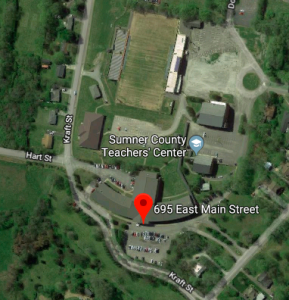
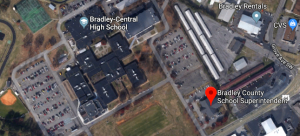
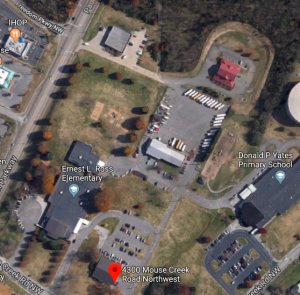
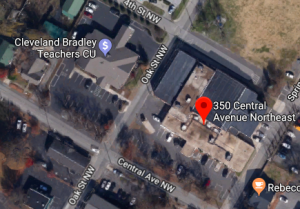
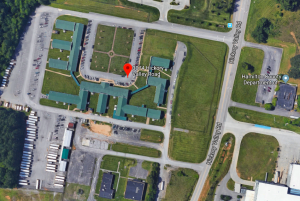
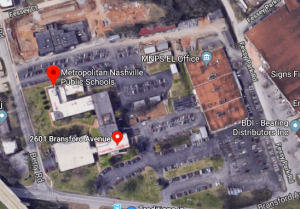
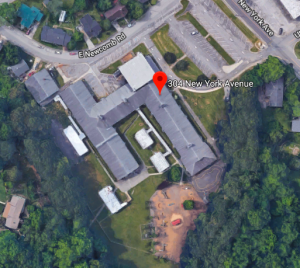
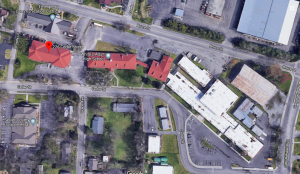
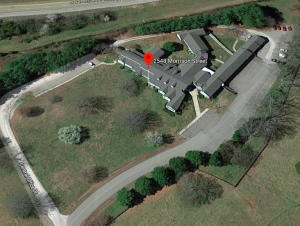
Recent Comments